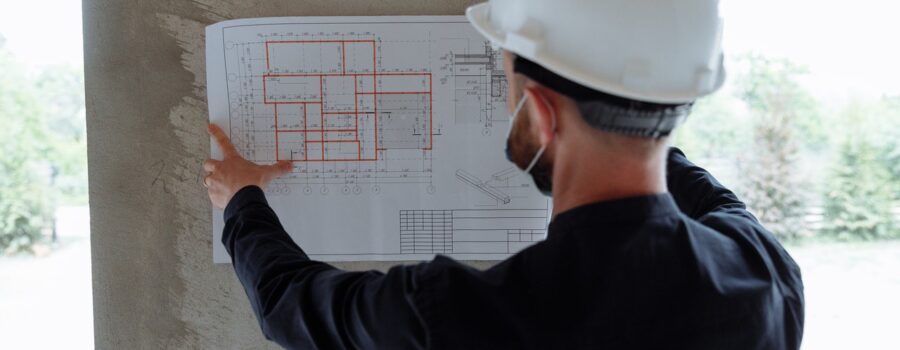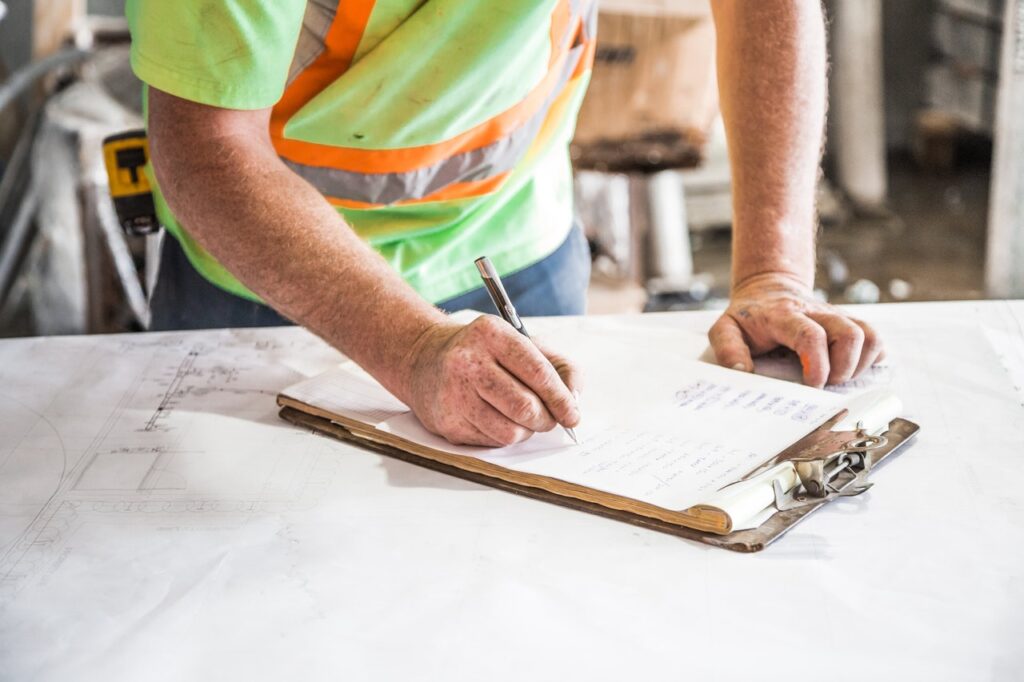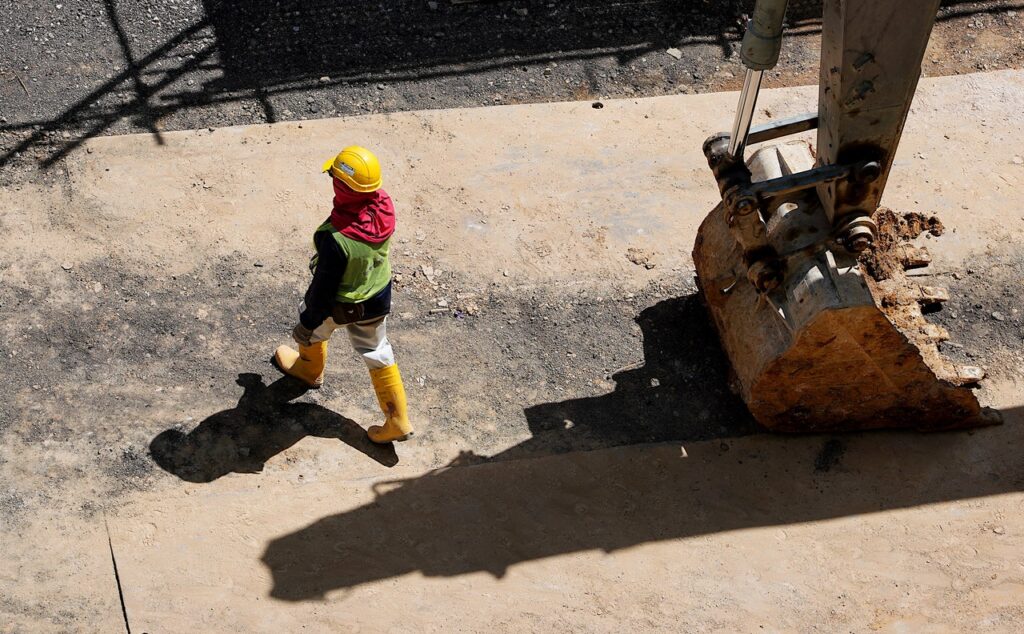
The Ultimate Guide to Obtaining a Construction Loan
Building your own home is a great way to make sure that every facet of the structure is designed to your specifications. If you know what you want the kitchen to look like and have a good idea of how the floor plan should be spaced, creating a custom home may be preferable to buying a home that might not meet your exact needs. The only downside to constructing a home from scratch is that the costs associated with labor and building materials can be high.
In order to cover the costs of building your own home, it’s possible to take out a construction loan that will provide you with the funds you need to purchase land and pay the necessary labor and material expenses. Even though construction loans are similar to standard mortgage loans, there are some key differences that you should know about before you apply. There are also different types of construction loans that you can obtain depending on the situation you’re in.
Keep in mind that these loans are designed to provide borrowers with short-term financing, which means that you only have a short period of time to repay the loan. The repayment terms depend on the type of construction loan you apply for. In some cases, the loan will need to be repaid after 12-18 months, which is around the amount of time it takes to build a home. It’s also common for these loans to be converted directly into home mortgages once construction has been completed.
Construction loans are ideal for any prospective homeowner with the desire to build their own home. If you’re purchasing a “fixer-upper” that requires a substantial amount of renovation work, it’s possible to obtain a loan that covers the renovation costs. The type of construction loan you select depends on what costs you would like the loan to cover. Before applying, it’s important to understand that construction loans have relatively high-interest rates.
While traditional mortgage loans are secured by the home that the loan is being applied to, this isn’t possible with a construction loan. As such, the lender’s risk is higher, which is why interest rates can also be high. The average interest rate for a construction loan is around one percent higher than the average rate for a standard mortgage loan. The following offers a detailed guide on what it takes to obtain a construction loan.
Types of Construction Loans

There are five construction loan types that could apply to your situation, which include:
- Construction-only loans
- Construction-to-permanent loans
- Renovation loans
- Owner-builder loans
- End loans
Construction-Only Loan
This is a short-term loan that’s typically issued with a one-year term, which means that the loan will need to be repaid in full after a 12-month period. The purpose of this loan is to only cover the construction costs, which means that it can’t be converted into a mortgage once construction has been completed. These loans have a relatively high amount of risk attached to them because the developer will still be tasked with obtaining a building permit as well as several additional approvals.
If the permit is denied or a sizable issue occurs with construction, the borrower may be unable to repay the loan on time. Once construction has been finished and the total loan amount has been repaid, you will be tasked with applying for a traditional mortgage, which means that getting a construction-only loan will require you to complete two applications and go through two closings.
Construction-To-Permanent Loan
This loan type is designed to finance the construction of a new home, which makes it similar to a construction-only loan. The main difference between these two loan types is that construction-to-permanent loans can be converted into permanent mortgages once the construction process has been completed. The primary benefit of this loan type is that you won’t need to apply for two loans and go through two closing processes.
While construction is ongoing, the only payments you will be tasked with making are interest-only payments. A downside to selecting this type of loan is that it’s considerably more expensive than a standard mortgage loan. You can reduce your total costs by searching for the best interest rates and comparing the loans available to you. Keep in mind that these constructions loans can only be converted into fixed-rate mortgages.

Renovation Loan
These loans are insured directly by the Federal Housing Administration, which you should be aware of before applying for one. The purpose of this loan is to provide borrowers with the opportunity to purchase and further renovate a new home. Since the construction work associated with this type of loan is centered around renovations, all of the renovations you complete on the home should be covered by the loan.
You may be able to qualify for a renovation loan through Freddie Mac and Fannie Mae. If you want most or all of your renovation costs to be covered by the loan, it’s important that you complete precise calculations of how much you expect the renovation work to cost.
Owner-Builder Loan
When you construct your own home, this process usually involves hiring a general contractor who will perform most of the work and manage the entire construction process. An owner-builder loan is designed specifically for borrowers who want to bypass a general contractor and perform the work on their own. In order to obtain one of these loans, you must prove that you have the education, experience, and necessary licenses to perform the construction on your own. While this loan can be difficult to obtain, it’s ideal for prospective homeowners who have some experience working in construction.
End Loan
The fifth and final type of construction loan is an end loan, which is a standard mortgage that can be applied for directly once the home has been fully constructed. This type of loan isn’t needed if you obtain a construction-to-permanent loan or a renovation loan. The best aspect of applying for an end loan is that the process is the exact same as a standard mortgage loan.
Construction Loan Requirements & Rates

Before you apply for a construction loan of any kind, it’s highly recommended that you learn more about the loan requirements and average interest rates that can be attached to these loans. As mentioned previously, these loans can be risky for lenders because of the numerous issues that can arise throughout the construction process. The lender’s risk also increases because of the lack of security for the loan in question.
When you apply for a standard mortgage loan, the home you’re buying will be used as a form of collateral on the loan, which reduces the lender’s risk. Construction loans can’t be secured with anything since a structure has yet to be built. Interest rates vary depending on the strength of your credit score, the loan terms, and how large the loan is set to be. Keep in mind that it’s possible to obtain a loan with variable interest rates, which means that the interest rate you pay is dictated by the prime rate that banks and similar financial institutions use.
If you want your loan to be approved, there are some basic requirements that you must adhere to. The approval process for a construction loan is typically lengthier and more rigorous than the approval process for a standard mortgage. You will need to provide the potential lender with construction plans, a proposed budget, and an estimated construction timeline. The additional approval requirements include:
- Great credit score – If you want to qualify for this loan, you must have a credit score of at least 680. Keep in mind that some lenders only approve borrowers who have a credit score that’s at least 720.
- Low debt-to-income ratio – This ratio compares your monthly payments to your monthly income to determine how much you can afford. A lower DTI ratio indicates that you have enough income to cover the loan costs. Try to reach a DTI ratio of 45 percent or lower before applying for a construction loan.
- General contractor approval – The general contractor you want to hire must be licensed, insured, and qualified. This individual will need to provide the lender with proof of all three of these requirements.
- Down payment of 20% or higher – Lenders typically require a down payment of 20% or higher for loan approval, which means that you must pay at least 20% of the total loan amount.
- Income that will cover loan amount – Your income must be able to cover the monthly payments that you’re expected to pay while construction is ongoing.
- Project budget approval – Lenders want to be as confident as possible that the construction process will go according to plan, which is why you should provide them with blueprints, property specifications, a land deed, a payment schedule, a construction contract, and a comprehensive line item budget.
Choosing a Construction Loan Lender

When you’re searching for the right lender, it’s important that you compare all of your options to get the best rates and terms available to you. Some of the questions that you should ask potential lenders to further narrow your options include:
- What kind of interest rates can I have?
- Are the interest rates variable or fixed?
- Which construction loan types do you offer?
- What are the closing costs and other fees?
- How are construction draws paid for?
- Can land equity be used to pay for the down payment?
Finding the right lender with the lowest rates can help you obtain lower monthly payments, which is why your search should be comprehensive. The information contained in this guide should tell you everything you need to know about construction loans. If you want to build a custom home that’s designed to your exact specifications, a construction loan is likely your best option for covering the construction costs.

Jason Somers, President & Founder of Crest Real Estate
With over 15 years of professional experience in the Los Angeles luxury real estate market, Jason Somers has the background, judgement and track record to provide an unparalleled level of real estate services. His widespread knowledge helps clients identify and acquire income producing properties and value-ad development opportunities.
Learn more about Jason Somers or contact us.



